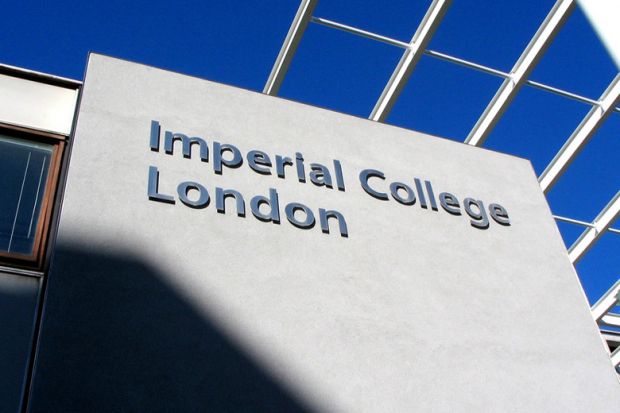Imperial College London is opening its first overseas research centre in Singapore, as part of a “more strategic approach” to international collaboration.
The initiative, called Imperial Global: Singapore, is designed to allow the institution’s scientists to work more closely with university, industry, government and third-sector partners in Singapore. The first programme at the centre will be a $20 million (£15.8 million) collaboration with Nanyang Technological University, Singapore (NTU) to improve medical device and health data security.
Mary Ryan, vice-provost for research and enterprise at Imperial, told Times Higher Education that the university had a long history of collaboration in Singapore, including the establishment of the Lee Kong Chian School of Medicine in 2010, alongside NTU.
“This is a more strategic approach to how we think about catalysing even greater partnerships, both in Singapore and then using that as a platform across the region,” she said.
“It’s very much signalling our intent to be a global partner. It’s about having a position in the region where we are accelerating and expanding our research impact by taking a more strategic approach.”
Imperial said the centre would enable scientists to rapidly scale new scientific breakthroughs and technology for social benefit and commercialisation in South-east Asia.
The facility will be based at the Create campus, which is already home to research centres associated with the University of California and the University of Cambridge, among others.
Professor Ryan said joining the campus would kickstart a pipeline of innovative research and technology between scientists and engineers at Imperial and its partners in Singapore.
Academics from Imperial and NTU have been awarded a four-year grant from the National Research Foundation Singapore for the first project, which is called In-Cypher.
While celebrating its first overseas research centre and promising a “more ambitious scope”, Imperial will not be opening a branch campus any time soon.
Professor Ryan said overseas campuses were not part of Imperial’s business model, explaining that the research centre was a more sustainable alternative.
“Many universities have established overseas campuses, and we’ve always said that is not our intention,” she said.
“Our work has always been around local partnering, so this is just a way of saying that for the future we’re going to do that more, on a bigger scale and more strategically.”
Hugh Brady, president of Imperial, said Imperial Global: Singapore would connect with world-leading science and technology in Singapore and South-east Asia and open a gateway for stronger collaboration with the UK.
“The initial focus on medical device and health data security could not be more timely given the importance of this area to improving patient outcomes and health system integrity,” he said.
Register to continue
Why register?
- Registration is free and only takes a moment
- Once registered, you can read 3 articles a month
- Sign up for our newsletter
Subscribe
Or subscribe for unlimited access to:
- Unlimited access to news, views, insights & reviews
- Digital editions
- Digital access to THE’s university and college rankings analysis
Already registered or a current subscriber? Login








